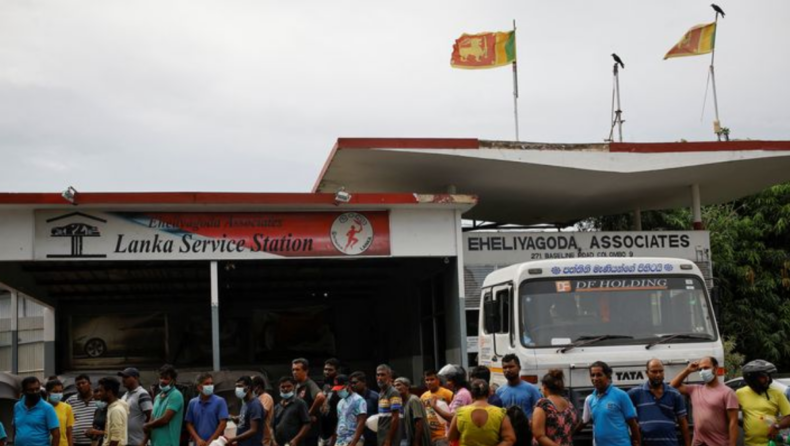
Sri Lankans are in crisis, unable to get essentials such as food, gasoline, medication, cooking gas, and even toilet paper and matches.
The five-time prime leader inherited a country on the verge of bankruptcy and burdened with so much foreign debt that it has no money for essential imports. Wickremesinghe’s new post left little questions about what lies next.
“The next couple of months will be the most difficult ones of our lives,” he warned a people tired of long lines, skyrocketing inflation, and out-of-control riots.
“We must prepare ourselves to make some sacrifices and face the challenges of this period.”
Since his broadcast statement on May 17, the seasoned politician, has initiated rigorous discussions with financial institutions, lenders and partners, and United Nations agencies. They were to replenish the coffers and provide some relief to restless residents.
He has made critical moves, such as hiking taxes, and has promised to reorganize the administration, which focuses power around President Gotabaya Rajapaksa, a model that many say has aggravated the issue.
President Mahinda Rajapaksa’s brother, President Gotaba Rajapaksa, stepped down last month after days of violent demonstrations forced him to flee to a naval station for protection from enraged crowds.
On Tuesday, Wickremesinghe is scheduled to give a much-anticipated address in Parliament, which many expect to include a plan to resolve the issue.
However, because changes take time and people demand results now, time may not be on his side. He’s also a one-man show in Parliament. The sole member of his party to retain a seat following a catastrophic setback in the 2020 election.
Purchase of necessities presents difficulties
Dayan Jayatilleka, a political expert and former ambassador state “A person who doesn’t have a political base has an unprecedented crisis to manage”.
Every day, lines to buy petrol and cooking gas stretched for kilometers (miles), snaking around blocks,
with Sri Lankans braving torrential rain and blistering heat to purchase essentials.
It cost three times as much as before. They often have to wait days, and many of them still go home empty-handed.
Jagath Chandana, 43, has been standing in line for two days with a canister to buy cooking gas on the outskirts of the city, Colombo. “It’s been insane. We are completely powerless.”
Even Ranil appears to be unable to fix the crisis. “They (politicians) only talk while people are suffering on the ground,” he remarked.
They claim the crisis was driven by economic incompetence. Policy failures such as a sudden ban on imported chemical fertilizers, which destroyed crops, and a government stacked with the Rajapaksa family.
Sri Lanka has put off repaying roughly $7 billion in foreign debt that was due this year. From a total debt of $51 billion, it owes $26 billion through 2026.
Preparation for an IMF bailout package
While Wickremesinghe prepares to seek a rescue package from the International Monetary Fund, the country’s foreign currency reserves have dwindled to only two weeks’ worth of imports.
On Thursday, he said that any bridge financing would be contingent on an IMF agreement. He hoped that talks would be completed by the end of June.
Wickremesinghe said last week that the government aims to return $5 billion and add $1 billion to the country’s reserves.
In such a volatile situation, Wickremesinghe has been able to bring some transparency and rationality to the government, which was lacking under the Rajapaksa clan’s previous administration, according to Jayatilleka.
Analysts think it will be tough for him to meet some of the objectives, particularly because he is simultaneously fighting a tumultuous war to revise the constitution and increase Parliament’s powers to enact much-needed changes.
“His proposals are good for medium and long term. But people want immediate changes to take place and that they don’t see,” said political analyst Jehan Perera, adding that some perceive Wickremesinghe as assisting Rajapaksa in maintaining power.
Protesters have been calling for a full overhaul of what they claim is a dysfunctional governance model for weeks, in addition to a new president.
Leadership Crisis
Sri Lanka has been administered by a powerful executive presidential government for nearly 45 years. Following a landslide election victory in 2019, Rajapaksa reinforced the system by amending the constitution to further consolidate power in the presidency. It frightened critics at the time.
Early on, Wickremesinghe presented a strong case for rescinding some of the president’s powers. However, such measures will be difficult to implement, as they will require not just Supreme Court permission but also a two-thirds majority in Parliament.
Wickremesinghe’s ability to carry through changes in the 225-seat Parliament. Where Rajapaksa’s party has a majority, has been questioned.
Some opposition parties have already backed the measures, but Wickremsinghe’s one-man show in the house might be a big disadvantage. It might also be a benefit.
In 2020, his party broke due to a leadership conflict, causing the departure of most senior members and the formation of a new party. It is now the country’s primary opposition.
“He has the opportunity of playing the role of a technocratic prime minister, with his expertise and experience, unconnected to any political party,” Jayatilleka added.
Since Wickremesinghe took over, the scale of the protests has also shrunk. People are finding it difficult to maintain their momentum. Perera believes that as long as the economic crisis persists, so will the protests.
While indicators of financial hardship and struggle persist in Sri Lanka. Some people are beginning to believe that Wickremesinghe would help them get through difficult times.













